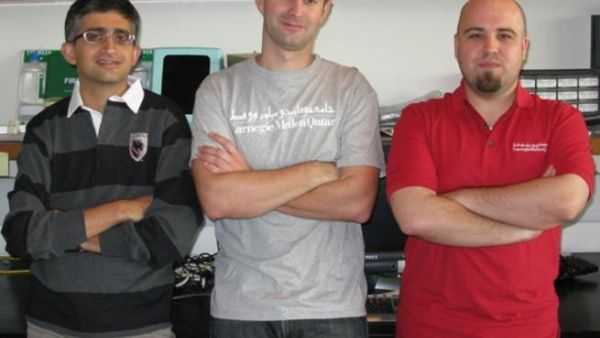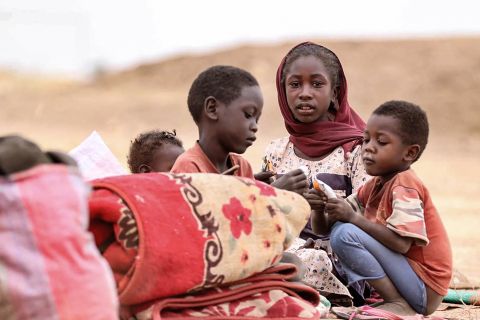Carnegie Mellon Qatar is awarded three Young Scientists Research Experience grants from the Qatar National Research Fund

Age might only be a number, but for Behrang Mohit, Ph.D., Peter Hansen, Ph.D., and Thierry Sans, Ph.D., it was a factor in each of them winning a grant from the first cycle of the Young Scientists Research Experience Program from Qatar National Research Fund.
The YSREP grants aim to build human capital by supporting young scientists to initiate and lead their own research. One of the criteria for these grants was that the scientists be age 35 or younger: A requirement met by all three members of the Computer Science Department at Carnegie Mellon Qatar.
“This is a wonderful result that reflects the high-quality research that is being done by the young faculty and post doctoral research associates at Carnegie Mellon Qatar. They are all under age 35 and are working on amazing projects with real-world impact,” says Majd Sakr, Ph.D., assistant dean for research.
The real-world impact Sakr speaks of ranges from increasing the Arabic content on Wikipedia to creating 3-D maps using robots to developing more secure Web applications. All of these projects will have a great impact on Qatar as well as the rest of the world.
Mohit's proposal focused on expanding Arabic Wikipedia by statistical machine translation. “Arabic is one of the top 10 spoken languages, yet the number and the length of Arabic articles is not in the top 20 languages of Wikipedia,” says Mohit. “We plan to train systems that automatically translate Wikipedia articles from English to Arabic and locate those parts with higher translation quality to be used by Arabic Wikipedia authors.”
Hansen’s project involves SLAM, or simultaneous localization and mapping using robots. Since GPS can be fairly unreliable when there are buildings and structures in the way, Hansen is fitting a robot with multiple cameras then creating a 3-D map of the environment using the images from the cameras.
With multiple cameras, the robot can find its position and determine what has changed from a previous trip. Such technology could be a crucial safety feature at LNG processing facilities because the robot could automatically do surveillance, check for gas leaks and find structural changes.
Sans’ work focuses on something that affects everyone on a daily basis: Internet security. He is working on a type-safe programming language for the Web called Qwesst that builds safe and secure Web applications.
Since Web applications are becoming more and more complex, it is harder to control how data are disseminated over the Internet. Attackers can steal sensitive information by exploiting Web application bugs. Qwesst will have a built-in security model that will allow programmers to control data dissemination and prevent them from writing unsafe code.
Mohit, Hansen and Sans each received grants worth $100,000 per year, renewable for up to three years. Carnegie Mellon submitted four of the 11 proposals that were independently evaluated by three internationally renowned peer reviewers. Only six grants were awarded: three to Carnegie Mellon, two to Qatar University and one to Weill Cornell Medical College.
“We submitted four proposals and were awarded three. And of the six grants that were awarded, Carnegie Mellon received 50 percent. I think that is excellent. With these grants, Carnegie Mellon will continue to be a fundamental component of the growing research culture here in Qatar,” says Sakr.
The first YSREP cycle was so successful that QNRF has decided to have two YSREP funding cycles each year.
Background Information
Carnegie Mellon University Qatar
For more than a century, Carnegie Mellon University has challenged the curious and passionate to imagine and deliver work that matters. A private, top-ranked and global university, Carnegie Mellon sets its own course with programs that inspire creativity and collaboration.
In 2004, Carnegie Mellon and Qatar Foundation began a partnership to deliver select programs that will contribute to the long-term development of Qatar. Today, Carnegie Mellon Qatar offers undergraduate programs in biological sciences, business administration, computational biology, computer science, and information systems. Nearly 400 students from 38 countries call Carnegie Mellon Qatar home.







